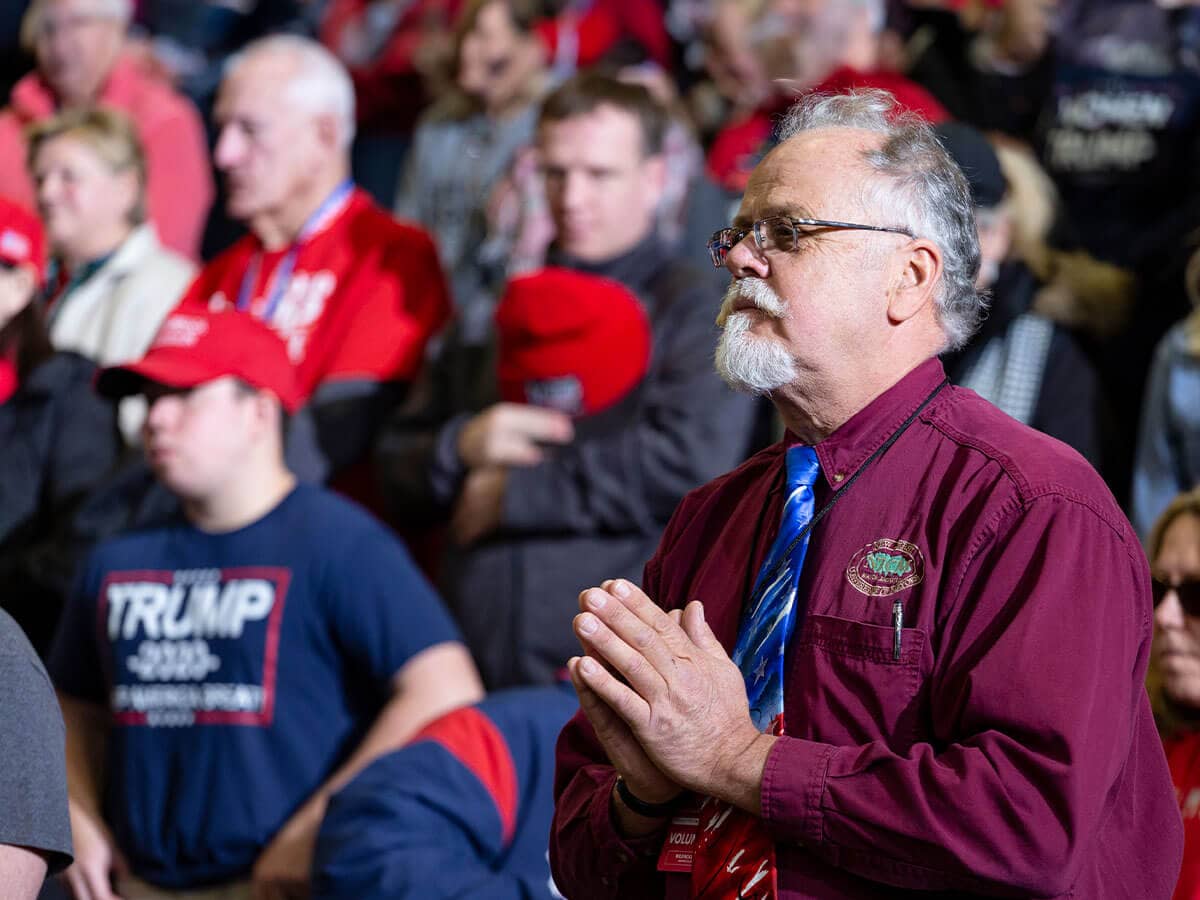Bryan reports to an Episcopal priest and belongs to one of the fastest-growing ministries in the country: parish nursing.
In the past 15 years it is estimated more than 1,000 churches and synagogues in the United States have hired nurses. The growing movement, the latest example of the pairing of faith and health, shows the increasing role faith-based institutions play in health care and the growing influence health issues play in the daily lives of congregations.
Parish nurses are registered nurses who initiate a health care ministry in a church to assist members in their physical, emotional and spiritual well-being. They help with in-home care and offer congregational workshops on topics such as diet, exercise or health screenings.
They organize special events, such as health fairs, provide referrals to health and social professionals, conduct support group meetings, take blood pressures and make hospital and nursing home visits. They often serve as advocates for elderly parishioners who have no relatives nearby to look out for them.
Most of them say they became parish nurses so they could combine their faith with nursing practice.
"It was a God thing, I'm telling you," Bryan, 43, said from her office at Calvary Episcopal Church in Indian Rocks Beach. "It's a ministry. It's something I feel called to do."
Bryan is one of 90 parish nurses in the Tampa Bay area alone, with the majority working in Pinellas County, said Carole Jones, manager of the Health Ministry Parish Nurse Program based at St. Anthony's Hospital in St. Petersburg.
St. Anthony's, Bayfront Medical Center in St. Petersburg and St. Joseph's Hospital in Tampa offer an intensive one-day training program on parish nursing. As of yet, there is no professional certification for parish nursing.
But that will change, Jones said.
"It won't be long before nurses are certified as parish nurses," she said.
In 1994, St. Anthony's became the first hospital in Florida state to offer a training program in parish nursing. Today, Jones said, it is the largest hospital-sponsored parish nursing program in the country.
Most parish nurse positions fall into one of four categories: a paid employee of a church, a paid employee of a hospital, a volunteer of a church or a recipient of a grant-financed program.
Sandra Giles, 50, falls into two of those categories. For five years she has volunteered as a parish nurse at her church, Clearview United Methodist Church in St. Petersburg. Yet she also gets paid for her work initiating parish nurse programs in local churches, a position financed by a grant received by St. Anthony's.
"I get the ball rolling," Giles said. "I teach people in the church how to maintain a health and wholeness ministry."
The members of Maximo United Methodist Church in St. Petersburg, where Giles worked last year, opted for forming a church-based health ministry team rather than hiring a parish nurse. This year, Giles is helping Lakeview United Methodist Church in St. Petersburg begin a parish nurse program.
Giles said she left a high-paying position at a hospital to take the lower-paying job of parish nurse. The rewards far outweigh the smaller salary, she said.
"A parish nurse is a bridge between God's care and health care," said Giles, whose job ranges from explaining a medical term to a sick parishioner to praying with a church member. "We rarely leave a person's side without praying."
That's what Frank Foster finds comforting when Bryan visits him and his wife, Lucille, who is in the early stage of Alzheimer's disease. "She's been very nice and kind," said Foster, 90. "Talking helps out a lot."
Sometimes seeing a friendly face is all that is needed, Bryan said. Many elderly people are scared and lonely, she said.
"It's just about being present," she said. "It's about being there."
In July, Bryan saw 69 clients, made 148 telephone calls and wrote 12 letters or cards. All but one of the recipients are 60 and older.
That is exactly why the Rev. Bob Wagenseil, pastor of Calvary Episcopal Church, hired a parish nurse. "Just look at our population, especially here in Florida," he said.
After a year of research, Wagenseil said, a church committee decided having a parish nurse on staff would be in the best interest of the predominantly elderly congregation. The church bought a laptop computer and mobile phone and hired Bryan in April.
"If you don't have a spiritual base, this wouldn't be a place to be," said Bryan, who lives in St. Petersburg and belongs to First United Methodist Church of Pinellas Park. "It's a call to serve God. I believe in the body, mind and spirit being all connected."
That is what Granger Westberg, a Lutheran pastor in Illinois, believed when he began doing pioneering work in the area of religion and medicine in the 1940s and '50s. He founded a series of holistic health clinics and wrote books on the emerging holistic health movement. In his later years, he focused his energy on the concept of parish nursing.
Jackie Hanko, 54, has been the parish nurse at Christ the King Lutheran Church in Largo since 1997. The Rev. Mark Frith, pastor of the 1,100-member congregation, hired Hanko instead of an assistant pastor.
Hanko, a former administrator of a large retirement community, said she spends much of her time visiting homebound parishioners. Though parish nurses cannot provide any invasive procedures to clients, they can check blood pressures and give assesments and referrals.
On a recent Wednesday, Hanko organized a stroke screening seminar at Christ the King while Bryan took 100-year-old Margaret Dyson to a doctor's appointment.
"Churches are now gaining a larger role in taking care of their people," Giles said. "We're seeing a return to the church family for support."

